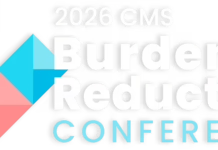The Medicaid and CHIP Payment and Access Commission (MACPAC) has released its June report to Congress. The report includes a chapter examining how Medicaid programs are responding to the opioid epidemic, according to the American Hospital Association (AHA).
The report notes that Medicaid beneficiaries are prescribed pain relievers at higher rates than those with other sources of insurance and have a higher risk of overdose from opioids. However, they also have higher treatment rates for opioid use disorders than privately insured adults.
While state Medicaid programs are responding to the opioid crisis by covering treatment, innovating in care delivery and working to reduce misuse of prescriptive opioids, they vary considerably in the services they cover because many Medicaid addiction services are optional, MACPAC said. The report also examines spending on Medicaid’s mandatory and optional populations and services, and federal and state activities to ensure program integrity in Medicaid managed care.
MACPAC, which submits two reports to Congress annually, serves as an independent source of information on Medicaid and CHIP issues that include payment, eligibility, enrollment, coverage, access to and quality of care and the programs’ interaction with Medicare and the health system generally.






